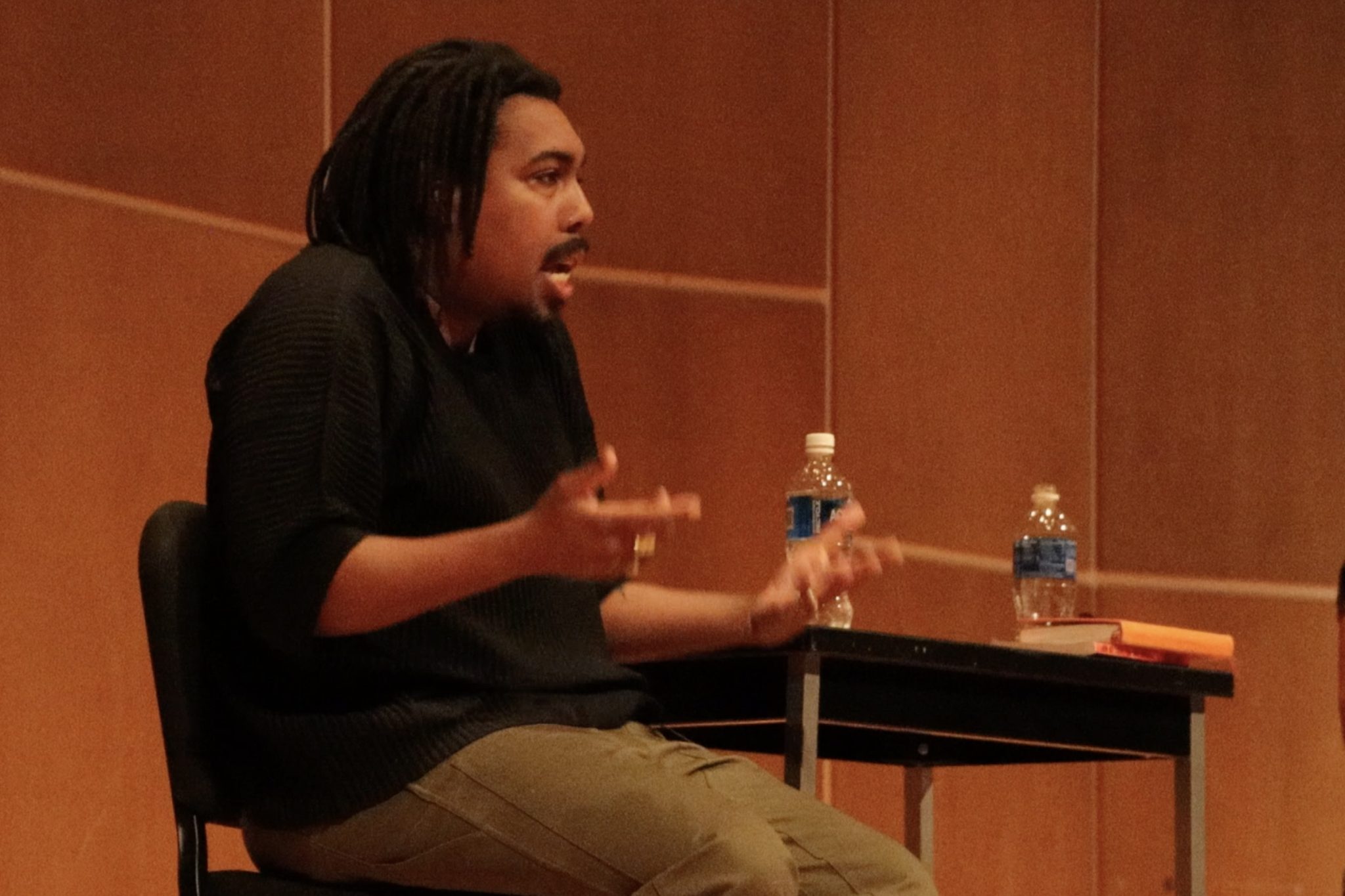Award-winning author and poet Saeed Jones detailed his literary career and upbringing as a Black LGBTQ+ man growing up in the South during a book talk Wednesday night in Tawes Hall.
This university’s LGBTQ+ Equity Center hosted the panel, where Jones read parts of his 2019 autobiography “How We Fight for Our Lives: A Memoir,” which won the Stonewall Book Award – Israel Fishman Non-Fiction Award in 2020. The book follows his coming of age journey as a Black gay man in the South in the 1990s.
LGBTQ+ people, especially LGBTQ+ people of color, deserve to be welcomed and respected in the United States, Jones told The Diamondback.
“It’s really clear that we’re going to have to fight for our respect,” Jones said.
Jones won the Stonewall Book Award and was a finalist for the National Book Critics Circle Award in 2015 for his poetry collection “Prelude to Bruise.” The Western Kentucky University and Rutgers University alum was also a founding and executive culture editor for BuzzFeed LGBTQ — an LGBTQ+ news publication.
[Terp Lions dance club roars with creativity, technical prowess]
Will Mosley, an assistant professor in the women, gender and sexuality studies department at this university, told The Diamondback it is important to hold events that highlight and platform Black LGBTQ+ people.
“Oftentimes there are people who are speaking for us, as opposed to speaking alongside us or allowing us to speak,” Mosley said. “It is work like this that is misunderstood to be not part of the American landscape, when in fact it’s forwarding the American ethos.”
Wednesday’s conversation was especially important in the current political climate where diversity, equity and inclusion and gender studies are under government scrutiny, Mosley said.
Mosley said students will see Jones as an ally who is writing to a generation that “really needs a book like this.”
Shabab Mirza, an applied economics graduate student, said she had known about Jones’ work for a while and was excited for his talk.
[UMD literature club highlights Asian American and Pacific Islander stories]
“Getting the chance to interact with these people who are like defining the national conversation on LGBTQ culture is a really great and important thing,” they said. “It’s important to have different types of queer leaders represented.”
Jones’ commentary about queer people not having to live in a “gayborhood” to be who they are resonated with Mirza, she said.
The talk concluded with a Q&A where audience members asked Jones questions about race and sexuality. Jones told The Diamondback that this university’s students posed the best questions that he has been asked in a long time.
“I’m inspired by the thoughtful questions,” Jones said. “I’m excited to get back to work.”



